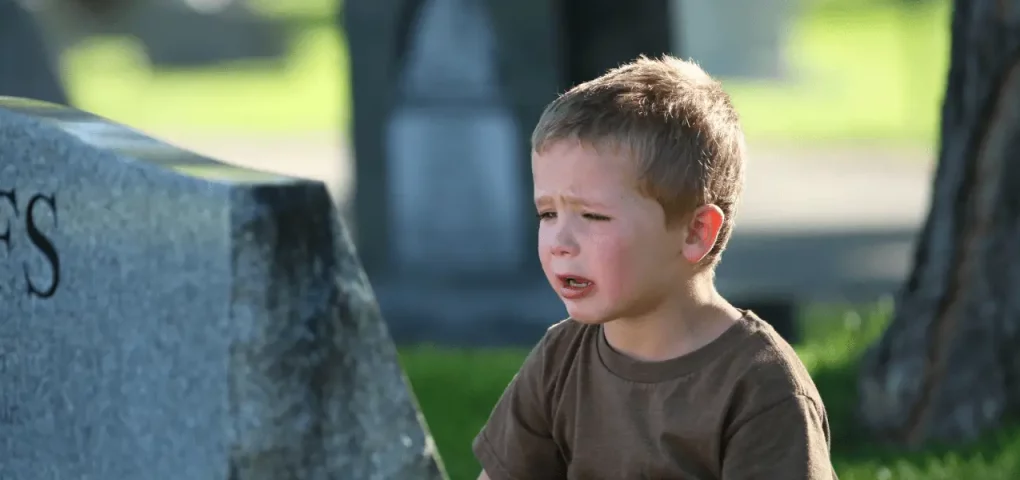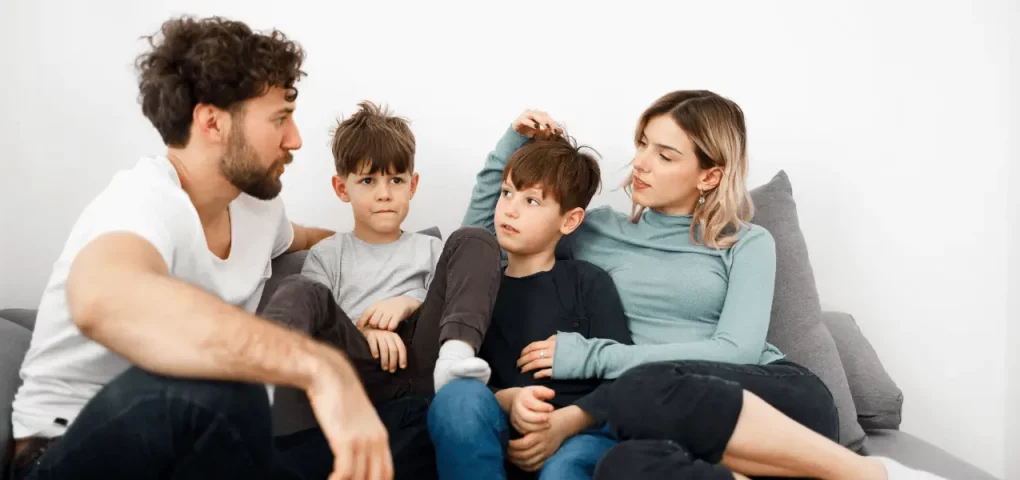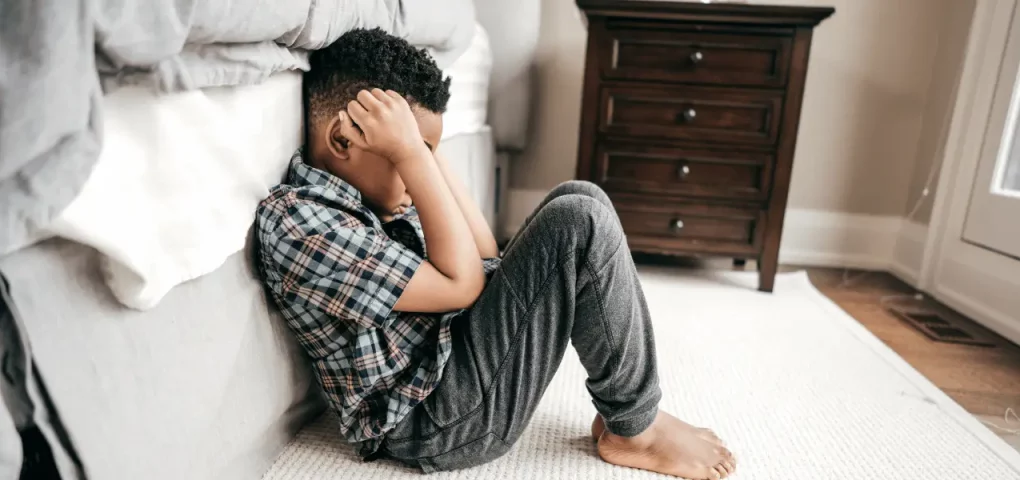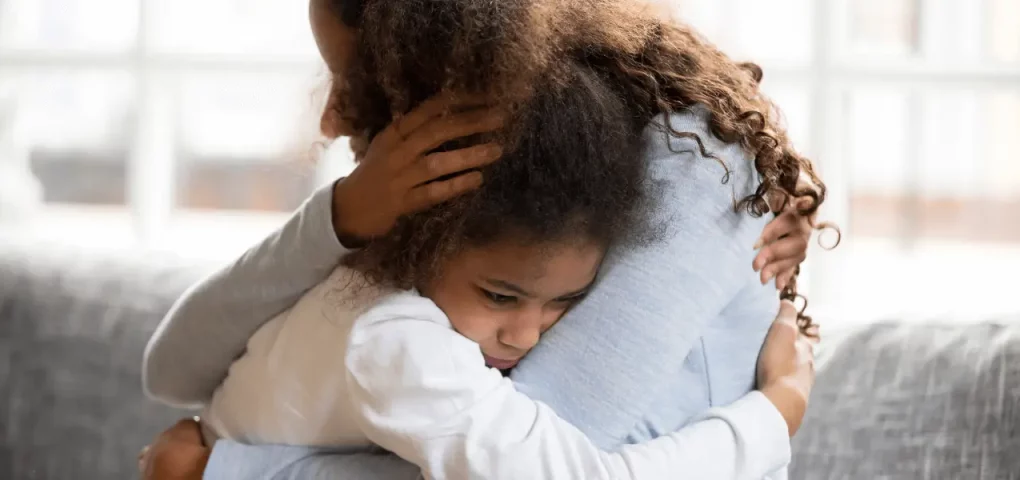
Few things in life are as painful as having to deal with loss. But for kids, the pain that comes with such changes can be almost unbearable, even traumatic. How can you help them in coping with grief and get through this?
No matter how perfect our lives may be at the moment, everything can change in just a single minute. Unexpected tragedies can befall us when we least expect them. And major changes in life — divorce, relocation, and the like, can hit us hard.
And while no one wishes for such painful things to happen, the truth is, there’s no way for us to tell when our “perfect” lives could take a fateful turn.
If you’ve had to deal with such an unexpected, tragic turn of events recently, you’re probably still struggling to make sense of everything. And while you’re certainly affected by that sudden loss, there’s one who probably is as heartbroken as you are at the moment: your kid.

As adults, we’ve already gone through more than our fair share of pain and losses. But for children, this may be their first time facing such painful challenges. On top of that, they may not yet be mature enough to handle the overwhelming grief that comes with it.
It should come as no surprise then that difficult and painful times like this can lead to drastic behavioral changes for your child. It is important for adults to acknowledge that each child has unique feelings after a major loss.
If that’s the case for your child, what can you do to help your child cope with grief?
In this article, we’ll go over 5 helpful ways that parents can use to help their child cope with a loss. For most of them, you will need the help of other family members and friends.
Five Ways You Can Help Your Child in Coping with Grief
#1 Talk things through as a family

If your family has had to go through a significant change recently, it would be in everyone’s best interests to discuss how you can work together to get through.
Holding a family meeting to talk things through is a good way to assure your kids that they’re not alone to deal with their own feelings. Children need support in dealing with new feelings. Your child’s age does not determine their capacity to feel a certain emotion.
Do you need to sugarcoat grief?
Adults might think hiding the truth behind a smile and some flowery words help alleviate the situation. But it’s always better to be honest with your kids.
For example, if you’ve lost a loved one or a family member, telling your kids the truth rather than trying to dismiss what happened will help them deal better with similar situations in the future. As a parent, you help them acknowledge that pain and grief are normal aspects of life.
Older children tend to have more understanding compared to other children, so allow them to participate in planning memorials if they choose to.
Grieving children require more attention as they will be struggling not only with their feelings but also trying to understand the grieving process.
Do you need to shield young children from reality?
Shielding them from problems will only make it harder for them once they have to face the painful realities of the world. Sharing stories early on during a child’s development stage can help young children deal with their own grief later.
Try to talk things out before you consider a mental health professional. Be transparent with your emotions, but make sure you don’t do so to the point of overwhelming them. As a parent, you want to make sure to keep your discussion age-appropriate as it can leave an impact on your child’s life.
When you explain death or losing a loved one to children, they can perceive it in their own way. Children feel sad when they see their whole family struggle. While giving your child time should be your priority, the confusing phrases that a grieving parent uses often make your child feel more insecure.
There probably will be some aspects or details of the main problem that you cannot talk about at the moment. Still, the fact that you’re doing what you can to reassure your child that you’re with them is more than enough to help ease some of their stresses away.
#2 Allow them to express their emotions

Tears are part of a person’s healing process, so don’t hold your kids back from expressing whatever emotion they’re feeling due to a major change. For example, if you’ve just decided to make a cross-border move, your kids would most likely cry and make a holler.
You might be tempted to tell them off for reacting that way, but keep yourself from doing that. Just let them express their emotions however they want and understand that the only way to heal is by getting all that sadness out of their chest.
How does this help children express feelings?
Once they’ve let out their steam, you may want to encourage them to talk about their feelings. Listen to them as they do this, and try to resist the urge to “fix” the situation for them. You’re not there to provide the solution. You’re there to listen.
Do this until they heal and begin to accept that things have changed and that they simply have to live with these changes.
Your child is still learning the ropes of handling big emotions the way mature adults would, help them do just that. Once their intense feelings subside, they’ll be able to see and think things clearly, and the next set of painful changes won’t be too hard on them anymore.
#3 Look for opportunities to spend more time with your kids

It’s during the lowest point of your children’s lives that they need your presence the most. They may not know this themselves, and they may even try to fight your company and push you away. But you know better.
Your child is wounded. And as a parent, you’re the only one who can help them heal.
So look for ways to connect with your child better. If things are strained between you and your child as of the moment, gently try to push against the barriers they’ve set up.
How can you connect with your child's grief better?
This can be really tricky, and one wrong move can cause your child to shy away from you even further.
Shower them with attention in whatever way you can. Even if you feel you’re getting nowhere despite your best efforts, do what you can to make children think that you’re there to help, not fight with them. Try to have family members or friends engage with them by doing normal activities.
Sooner or later, your child will open up to you, and things will start getting better as you both try to heal from a traumatic change in your life.
#4 Gently establish limits to their emotional outbursts
While you want your child to feel supported as they go through a difficult, if not painful, transition, you also want to remind them that there are still boundaries as to how far they can take things.
If your child is expressing their frustration by misbehaving, try not to take this personally and see it for what it truly is: A sure sign that their emotions are clouding sound judgment.
Helping Kids Explore and Understand Grief – Available on Amazon
100 Activities for Coping, Comforting, & Overcoming Sadness, Fear, & Loss – Buy from Amazon
Guided Prompts to Explore Your Feelings and Find Peace – Check on Amazon now!
How can you help your grieving child?
Again, this is where you, as the parent, should come into the picture. Help them understand that while you empathize with the frustrations they must be feeling at the moment, there are better ways for them to heal.
When you make them attend memorial services, make sure you reassure your child. They may not understand what death means, so they can repeatedly ask same questions. As a parent, you have to be patient and understanding when explaining death to children.
Sometimes, all your child needs is a gentle reminder that they need to learn how to tame their emotions as they develop into more mature individuals once they age.
#5 Remember to take care of yourself as well
You’re probably wondering how this can be related to helping your child see things through at this point. But yes, self-care is crucial if you want to stay rational and balanced while helping your child understand what’s happening.
Do this before you offer support to young children
If you don’t nurture yourself, you’ll have a hard time nurturing your children as well. And helping them heal will be even more challenging. As flight attendants always remind us, you have to ‘wear your oxygen mask first before putting one on your child.’
So try to give yourself the attention you need as well. Don’t forget that it’s not just your child who’s suffering, you are too. So be kind to yourself. Only then can you show as much compassion to your child.
Stay up-to-date with your child's mental health
Make sure that you stay on top of your child’s mental health updates. Be it from their school or their doctor, you need to make your child feel safe.
Children should not feel insecure about sharing stuff about their everyday activities.
If you do not have close families, do keep an open mind about seeking professional help. While young people today have an open mind about seeking help from school counselors early on for their children, there are still a lot of parents that ignore the mental peace required by school-age children.
Many children today have deteriorating mental health as they cannot come to terms with their grief, and this is why they need that constant support in their emotional developmental stage.
———–
Found this helpful? Share it with your friends! And don’t forget to read our other blog posts as well.


Leave a Reply